- Home
- Peter Matthiessen
Sal Si Puedes (Escape if You Can)
Sal Si Puedes (Escape if You Can) Read online
Sal Si Puedes
(Escape If You Can)
CESAR CHAVEZ
and the New American Revolution
PETER MATTHIESSEN
With a New Foreword by
Marc Grossman
UNIVERSITY OF CALIFORNIA PRESS
Berkeley Los Angeles London
A portion of the contents of this book appeared originally in the New Yorker, in somewhat different form.
Lines on pp. 228–29 from “If I Had a Hammer” (The Hammer Song) are used by permission. Words and Music by Lee Hays and Pete Seeger. TRO © 1958 and 1962 Ludlow Music, Inc. New York, NY.
Lines on page 226 from “Pastures of Plenty” are used by permission. Words and Music by Woody Guthrie. TRO © 1960 and 1963 Ludlow Music, Inc. New York, NY.
An excerpt by Rev. Wayne C. Hartmire Jr. from an article in the June 1966 issue of St Joseph Magazine is reprinted by permission. © 1966 by Mount Angel Abbey, Inc. All rights reserved.
An excerpt by Reverend Drake from the October 1968 issue of Presbyterian Life is used by permission. © 1968 by Presbyterian Life.
The editors of Bamparts magazine have granted permission to quote from “The Tale of the Raza,” by Luis Valdez, July 1966. © 1966 by Ramparts Magazine, Inc.
Postscript, “Cesar Chavez,” by Peter Matthiessen, first appeared in the New Yorker, May 17, 1993, p. 82. Foreword by Ilan Stavans first appeared in Transition, no. 84 (July 2000). © 2000 by Ilan Stavans.
University of California Press
Berkeley and Los Angeles, California
University of California Press, Ltd.
London, England
© 1969, 2014 by Peter Matthiessen
Foreword by Marc Grossman © 2014 by Marc Grossman
First California Paperback, 2000
ISBN 978-0-520-28250-6 (paper)
ISBN 978-0-520-95836-4 (ebook)
The Library of Congress has cataloged an earlier edition of this book as follows:
Library of Congress Cataloging-in-Publication Data
Matthiessen, Peter.
Sal si puedes (Escape if you can): Cesar Chavez and the new American Revolution / Peter Matthiessen; with a foreword by Ilan Stavans and a postscript by the author. p. cm.
Originally published: Sal si puedes. New York: Random House, C1969.
ISBN 978-0-520-22584-8
1. Chavez, Cesar, 1927– 2. Labor leaders—United States—Biography. 3. Mexican Americans—Biography. 4. Mexican American agricultural laborers—History. 5. Agricultural laborers—Labor unions—United States—History. 6. United Farm Workers—History. I. Title.
HD6509.C48 M38 2000
331.5'44'092—dc21
[B] 00-055580
CONTENTS
Foreword by Marc Grossman
Foreword by Ilan Stavans
Sal Si Puedes (Escape If You Can)
1
2
3
4
5
6
7
8
9
10
11
12
13
Epilogue
Postscript
To the farm workers and the American future
FOREWORD
The Power and Legacy of Cesar’s Vision
THE call still haunts me. I was in my Sacramento office shortly after 9 a.m. on Friday, April 23, 1993. Paul Chavez, Cesar Chavez’s middle son and one of eight siblings, was on the phone. “I’ve got some bad news,” he said, his voice cracking. “My dad has died.”
Paul was calling from La Paz, the farm worker movement headquarters at the Tehachapi Mountain hamlet of Keene, east of Bakersfield, just after hearing the news from union staff. They had discovered Cesar’s body when the United Farm Workers president had failed to awake in his room at the San Luis, Arizona, farm worker home where they were staying.
I’d known Cesar for twenty-four years, since beginning as a volunteer grape boycotter in 1969 while an undergraduate at the University of California, Irvine—and had served as his longtime press secretary, speechwriter, and personal aide.
Peter Matthiessen’s beautiful portrait of Cesar Chavez deepened my commitment when it first appeared later that year, and it is just as compelling four and a half decades later. My task here is to offer insights gleaned since Sal Si Puedes was initially published and bring readers up to date through Cesar’s passing in 1993, and beyond.
Paul Chavez was about to break the news to his mother, Helen, and other family members at La Paz. He asked my help in getting word to the press.
I made some calls, trying to keep a lid on the story so family members could be notified before word broke on the news. But soon it was all over the media. Fortunately, most immediate family members were already informed.
The drive down California’s endless Central Valley was a blur—until the Mercury air terminal at Meadows Field, Bakersfield’s airport. Helen Chavez, her eight children, many of her then twenty-seven grandchildren, and other family and friends stood on the tarmac in the early evening light. We watched for the twin-engine plane chartered by a UFW supporter that was flying from Yuma with Cesar’s body.
Helen had been making tamales that morning, to welcome her husband back home, in the kitchen of the family’s modest two-bedroom wood-frame house at La Paz. After learning that her husband of forty-five years had died, Helen kept on making tamales. Her children said that others urged them to be strong for their mother—but she was comforting them.
Cesar’s brother Richard Chavez and Arturo Rodriguez, who would soon succeed Cesar as UFW president, helped lift the body from the plane. A white shroud covered him. They carried Cesar toward a waiting hearse. Paul led everyone in the Lord’s Prayer. The body was later turned over to Irving Nichols, a former Bakersfield farm worker whom Cesar had befriended years before, who was now taking a leave from an African American funeral home in Los Angeles.
An honor guard of farm workers accompanied the body from that night on, taking turns standing silently, holding UFW flags. The idea came from when Cesar was one of many standing silent watch over Senator Robert F. Kennedy’s casket in New York’s St. Patrick’s Cathedral on the night before his funeral in 1968.
The task of organizing Cesar’s funeral began. We were expecting big crowds, although no one anticipated the forty-five-thousand-plus who journeyed to Delano. His passing was a deep personal loss. Thankfully, he died of natural causes, peacefully in his sleep, which was something of a relief because we had always worried that he would meet a violent end like the Kennedy brothers, Dr. King, and his hero Gandhi.
I was with Cesar at the two times in the 1970s when federal agents notified the union about plots on his life. “I’ll live to be a hundred if they don’t get me with a bullet or if I don’t die in a car crash,” he’d say. His father had died at 101. His mother was ninety-nine. Many first cousins had lived into their nineties. He was a strict vegetarian who meditated and exercised. But the years took their toll.
His last long fast, in 1988, over the pesticide poisoning of farm workers and their children, lasted thirty-six days; he was sixty-one. Cesar still labored sixteen-hour days at sixty-six. He hadn’t taken a real vacation in thirty-one years, since starting the union in 1962. He insisted on the cheapest seats on red-eye flights traveling across the country to save his union some money. “You’re worth the extra money” for a regular plane ticket, Helen would tell him. It didn’t do any good. No one could tell Cesar Chavez to spend more or reduce his hectic pace.
He rarely traveled by plane in California or Arizona. As his aide, I gave up trying to count how many times we’d meet at his house before 4 a.m. to be in a distant part of th
e state by midmorning. After a full day’s schedule, we’d make the long drive back to La Paz and get home at 2 or 3 a.m. He’d be back at work that morning before anyone else.
“My father packed 120 years of work into sixty-six years of life,” his son Paul said.
• • •
Cesar endured hardships and sacrifices in building the movement. Not the least of them fell on his family.
I grew up among his older kids, first getting to know Cesar through his eldest son, Fernando, when we were nineteen- or twenty-year-old college students. We were the same age and remain close friends. I still call him Polly, his nickname, around family.
Fernando told me how his father never took him as a teenager or later to a baseball game. They never played catch together. Tensions can develop any way between fathers and sons, especially when they have similar personalities and traits. Fernando also often didn’t have his father around. As Cesar put it, the work had to be so important that he was even willing to sacrifice spending time with his family. Matthiessen touches on this tension in Sal Si Puedes, and it is a theme in Diego Luna’s new film Cesar Chavez.
Helen said Cesar loved being with his children. He would read to them and take them for weekend drives, to the park, or on annual weeklong family vacations. After the union work began, such occasions grew fewer and fewer, until they disappeared.
Cesar attended the 1970 church wedding of his daughter Eloise in Delano, went to the reception, and performed the traditional first dance with the new bride. Then he jumped in the car for the five-hour drive to Salinas, where a lettuce strike was breaking out. A year or so later I heard Cesar offer advice to a soon-to-be son-in-law about how the quality of time you spend with your family is more important than the quantity of time.
Cesar wasn’t around much when his children were growing up, leaving their care to Helen. The older kids took care of the younger ones once the Delano Grape Strike started in 1965, and Helen spent long days on picket lines and taking over the farm workers credit union from Cesar.
Fernando left Delano several years into the strike because of merciless harassment in high school by grower and Anglo town kids. He went to live in the East San Jose barrio of Sal Si Puedes with his grandparents—Cesar’s parents, Librado and Juana Chavez—to whom he was close.
At the height of the Vietnam War in 1969, Fernando filed as a conscientious objector with his Bakersfield draft board. When he told his dad he would refuse the draft, Cesar said, “That will take a lot of moral courage. You could go to prison. Are you prepared to do that?”
“I don’t know, but I think it’s the right thing to do,” Fernando replied. He was drafted and refused induction.
This was the era of the Nixon administration and enemies’ lists. We learned later that hundreds of FBI agents had spied on Cesar and infiltrated the UFW for nearly seven years, beginning in 1965. Cesar’s FBI file runs to 1,434 pages, although “no evidence of Communist or subversive influence was ever developed,” according to a 1995 Los Angeles Times story.
The FBI took Fernando away in handcuffs. He went on trial at the federal courthouse in Fresno. Cesar stood by his son and testified in his defense. As Cesar, Helen, and other family members were leaving for court early one morning from their little house on Kensington Street in Delano, their youngest child, twelve-year-old Anthony, started crying. “I don’t want my brother to go to jail.” They had to leave him behind.
The famed criminal defense attorney Michael Tiger, a law school classmate of UFW general counsel Jerry Cohen, represented Fernando. Tiger exposed government misconduct in singling out Fernando for special treatment because of his dad. The conservative federal judge presiding over the trial dismissed the jury and ordered a directed verdict of acquittal. Cesar did not easily express personal sentiments, but Fernando knew his father was proud of him, and in later years they worked to patch things up.
Cesar figured that the best way to spend time with his children was to have them work with him. All of his kids helped pass out leaflets in the union’s early days, before there was a staff. Some worked in UFW field and boycott offices. Linda, Paul, Elizabeth, and Anthony stayed with the movement for many years.
Paul’s father handed him books from his library by Tolstoy and Dostoyevsky, instilling in him a lifelong interest in reading. (Three walls of Cesar’s office-library are filled with floor-to-ceiling bookshelves that reflect his eclectic reading interests.)
The UFW’s success in union elections after California’s 1975 farm labor law passed created a big demand for negotiators. There was a heated debate among union executive board members over how to meet that demand. Some wanted to bring in well-paid and experienced negotiators from the outside to help farm workers navigate the complexities of bargaining, which requires knowledge of economics, labor law, English composition, and math (to cost out contract proposals).
Cesar fervently believed in the ability of farm workers and current movement staff to learn and exercise those skills. He would tell his children, “You will have a lot of opportunities in your life because of the work we’re doing in the union. But you will never know what it feels like to grow up and not have any opportunities.” Cesar said that he and his brother Richard were raised thinking that they would spend their lives laboring in the fields. So inspiring people to believe in themselves, preparing them, and giving them opportunities was a big part of Cesar’s legacy—and it is a big part of why he has been so honored since his passing.
He was also mindful that everyone has to produce, which is why he set rigorous standards and demanded they be met and why he couldn’t stand to be around lazy people.
Cesar prevailed and established a school to train negotiators in the rambling seventeen-thousand-square-foot Mission-style structure on the north side of La Paz’s 187 acres named for Fred Ross, his mentor and teacher. Some board members wanted applicants to have college degrees. Cesar insisted on also including young people, including those from farm worker families, who picked up the trash at La Paz, traveled with him in his security detail, and worked in the print shop.
Many from humble circumstances who graduated from the negotiating school—and from subsequent schools to train union organizers and contract administrators—went on to successful careers in other unions, government, and the professions.
One of those selected for the negotiating school was Paul Chavez, who had worked as an apprentice printer. “Throughout my life, my father always had more faith in me than I did,” Paul recalled. “He constantly urged me to do more. At first I thought it was because of the love a father has for his son. But soon I saw that what he did for me he did for others.” The love Cesar felt for his children he also felt for an entire community.
Sometimes Cesar would give up assistants. If they are good, one feels a natural inclination to hold on to them. Not Cesar. If he spotted young people with talent, especially if they hailed from a farm worker or working-class background, he convinced them that they could be accountants, administrators, or attorneys. He wanted results in the office but saw the greater good of helping people fulfill their dreams—dreams some of them didn’t even know they had at the time.
He gave hundreds of men and women opportunities that no one would have offered him when he was a young migrant worker with an eighth-grade education. Thousands more credit the experience and training of working with Cesar and the UFW for lifetimes of social activism and professional success. They include many current leaders of major unions, university professors, prominent attorneys and physicians, public officials, and community activists.
Wasn’t that what he wanted for farm workers too: the chance to negotiate with their employers as equals across the bargaining table—so they wouldn’t have to just take orders all their lives?
Cesar also spent his career speaking against machismo, constantly working to bring women into the ranks of the union, and getting them to be leaders, organizers, and staff.
He was easy to lose in a crowd. He looked, dressed, sp
oke, and acted like the people he was committed to helping. Farm workers and other Latinos especially would look at him and say to themselves and one another, “He could be my father or my grandfather or my son or my brother. And if Cesar Chavez can do these great things, maybe I can too.”
He said that his job as an organizer was helping ordinary people do extraordinary things. He made everyone in the movement believe that the job he or she was doing was important. It didn’t matter if you were an attorney representing the union in court or someone cooking in the strike kitchen. He made people believe in themselves—those whom almost no one considered very important. He gave them faith that they could challenge and overcome one of California’s richest industries.
Maybe that’s why Cesar succeeded where others with much better educations and a lot more money tried and failed for a hundred years before him. It is a measure of his greatness that he inspired hope and confidence in people who never had them.
Cesar could be incredibly generous in helping people grow and investing them with the authority to do their work. Jerry Cohen, the UFW’s longtime lead attorney, is still mystified by critics who claim that Cesar refused to delegate authority. “Cesar gave me too much authority” in hammering out union contracts with growers and jurisdictional pacts with the Teamsters Union or waging crucial legal fights, he says.
“Once he had a sense of confidence in a person, Cesar had no problem delegating authority,” Jerry recalls. “He gave me carte blanche to do whatever the hell I wanted. He’d say to just engage in the fight and use whatever tools I needed. ‘I’ll support you whether you win or lose in court,’ Cesar would say. And he would. Of course, I kept him informed of whatever I was doing all the time.”
That confidence helped enact California’s pioneering Agricultural Labor Relations Act, considered one of Cesar’s crowning achievements. To get this collective bargaining bill passed, Cesar and Jerry discussed “the key principles of what we wanted to see in the legislation, and then Cesar said, ‘Keep negotiating. Don’t give up on what we think is essential, but get whatever you can.’”

 Lost Man's River: Shadow Country Trilogy
Lost Man's River: Shadow Country Trilogy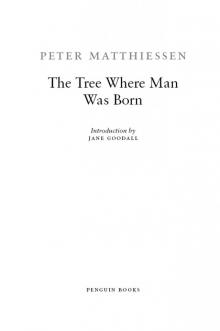 The Tree Where Man Was Born
The Tree Where Man Was Born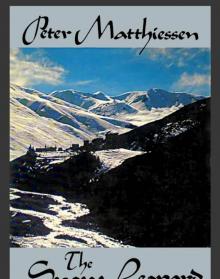 The Snow leopard
The Snow leopard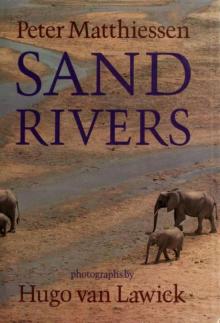 Sand Rivers
Sand Rivers The Cloud Forest
The Cloud Forest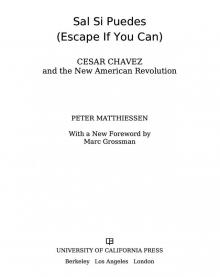 Sal Si Puedes (Escape if You Can)
Sal Si Puedes (Escape if You Can)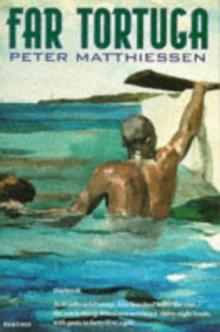 Far Tortuga
Far Tortuga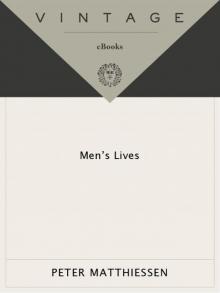 Men's Lives
Men's Lives On the River Styx: And Other Stories
On the River Styx: And Other Stories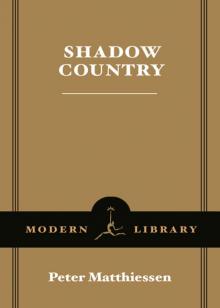 Shadow Country
Shadow Country At Play in the Fields of the Lord
At Play in the Fields of the Lord Lost Man's River
Lost Man's River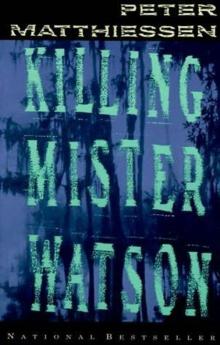 Killing Mister Watson
Killing Mister Watson On the River Styx
On the River Styx